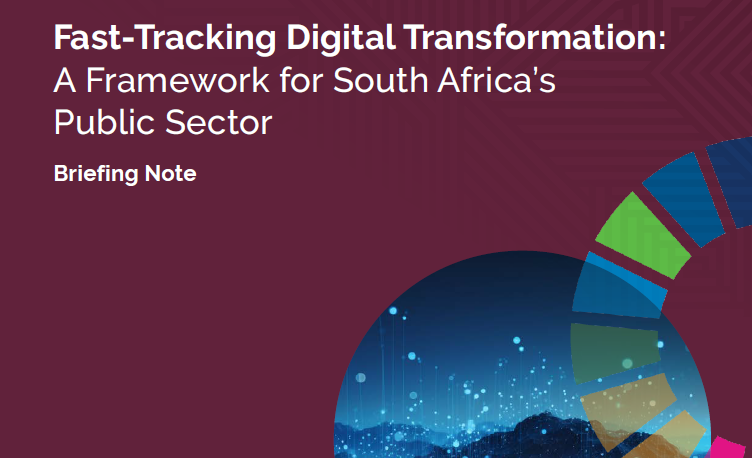The Policy Innovation Lab has released a briefing note proposing a framework for digital transformation in South Africa’s public sector. By doing so it intends to support attempts aimed at addressing the complexity of South Africa’s digital transformation efforts to ultimately accelerate the achievement of the Sustainable Development Goals in South Africa.
Using the OECD’s definition, digital transformation involves the societal and economic effects of digitisation and digitalisation, converting analogue data into digital formats, and using these technologies to innovate and improve existing processes.
The proposed framework has four dimensions:
- Leverage digitisation and digitalisation for positive socio-economic effects.
- Focus on societal outcomes like eradicating poverty, reducing inequality, and eliminating
unemployment, supported by better services, accountable institutions, improved education, and engaged citizens. - Establish effective governance and coordination mechanisms.
- Meet key institutional and infrastructure requirements
Recommendations include empowering a central government entity to lead digital transformation,
establishing an interministerial task force, and setting up a multistakeholder governance structure. Ensuring strong alignment between digital transformation and societal outcomes is essential. Efforts should focus on gathering citizens’ input and using open data and software. Institutional requirements should be reviewed, including appointment criteria and procurement regulations, and officials should be equipped with foundational digital skills. Infrastructure needs involve creating a competitive internal digital transformation market, prioritising system interoperability and data security, and ensuring affordable data storage and computing resources.
The full briefing note can be accessed here: Framework for digital transformation
